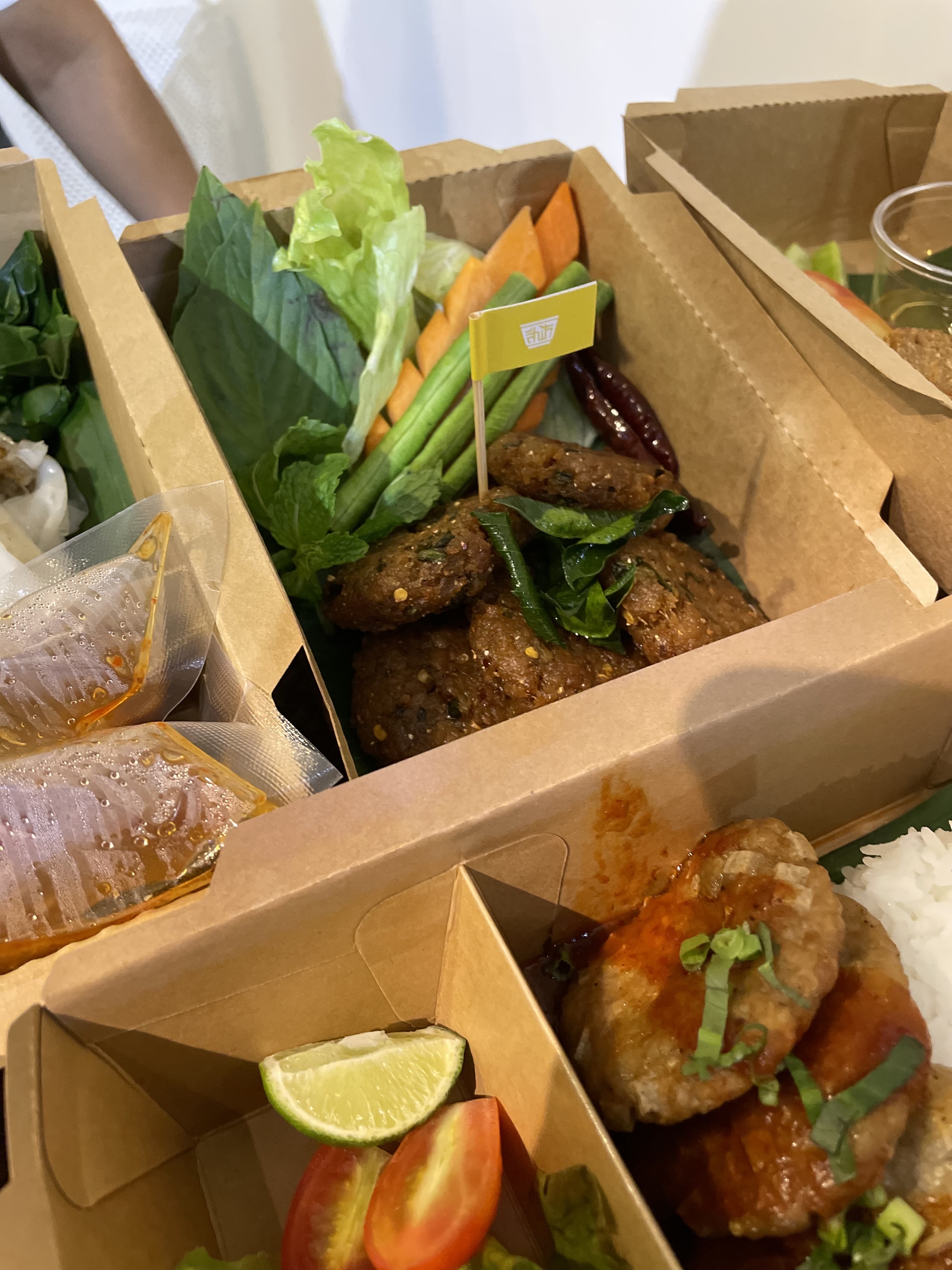Slower growth for “future food” projected this year

Thailand’s vegetarian festival or “J Fest” may help boost sales of so-called “future food” including plant-based meat, but the overall 2022 market will be growing at a lower-than-expected rate due mainly to high inflation which affects consumers’ purchasing power. According to KResearch, the industry is expected to grow by 5.1% to 4.1 billion baht in total this year.
The “future food”, which includes protein products made from non-meat ingredients such as plants, nuts and insects, has continued to grow for the past few years, and this year is no exception although the estimated growth has been decreased from 7 to 5.1%.
KResearch said that food products account for 36% of total Thai household expenditure and are therefore affected by the economic slump. The cost of living and inflation are rising, while people’s purchasing power is weakening. “Everyone thinks twice when buying something nowadays,” said Thai Chamber of Commerce’s vice president Visit Limlurcha.
Visit, who is also chairman of Food Connext, a group of SMEs that produces future food, told Thai PBS World that the pain point of non-meat protein is that the low-and-middle income brackets cannot not afford meals made from alternative protein because the prices are still relatively high compared to meat.
“We haven’t reached economy of scale yet unlike livestock or canned food so the prices will be higher,” said Visit, adding that he is aware of the problem but knows it cannot be solved overnight. What each producer tries to do is to differentiate its product from those already on the market because it is impossible to compete with leading manufacturers. “But a ‘different’ product also means those small players are shouldering higher costs.”
Currently, future food’s current customer base is made up eco- and health-conscious consumers and flexitarians (less strict vegetarians who sometimes eat meat). The number of flexitarians is growing fast because of the increase in plant-based meat supplies, which are now available in convenience stores and supermarkets.

However, Visit believes it will take at least 5 years until the plant-based meat and other future foods take off as mass products. “Maybe as long as 10 years,” he said.
In the short term, the reduced purchasing power is not the only challenge facing the future food industry. The SMEs and startups in the industry have to face higher ingredient costs such as soya beans. So one of solutions is to try to develop products based on ingredients that can be locally sourced. “We can’t compete in soya beans and we still have to import these but we can opt to use more mung beans or jackfruit and banana flowers – two ingredients that have been popular in the Western market for quite a long time.
Plants like (young) jackfruit and banana flower offer good textures that can imitate the meat texture so they could be further developed. “The key is to continue developing products, elevating them to be more innovative, more delicious and more affordable,” Visit said.
There is no one-quick-fix for all challenges, but Visit says having the government support the producers of future food, especially the SMEs and startups in terms of R&D, would make a big difference.
“We’re blessed with a variety of raw materials and we have a competitive edge in that aspect. What we lack is the massive budget for R&D.”
The future food is not only friendlier to the environment but also key to achieving sustainability. It is also a future Thai export, one that can grow exponentially in the next five years with major export markets such as Australia, China, Japan and the United States all potential customers.







